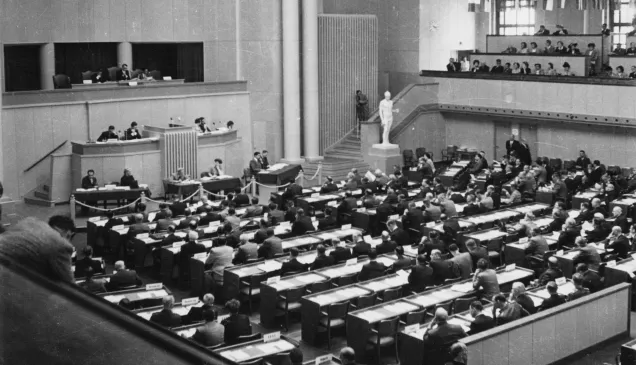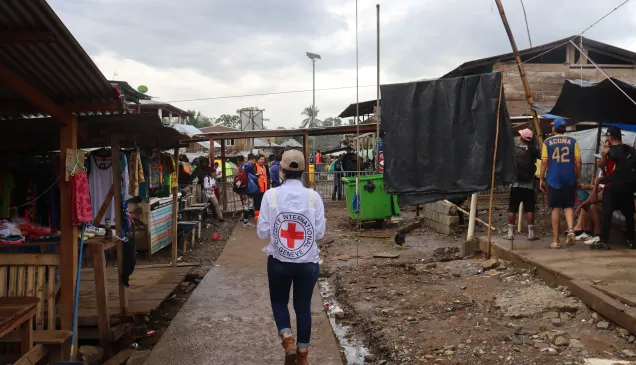ICRC vice-president Gilles Carbonnier travels to El Salvador and Honduras to address the impact of violence
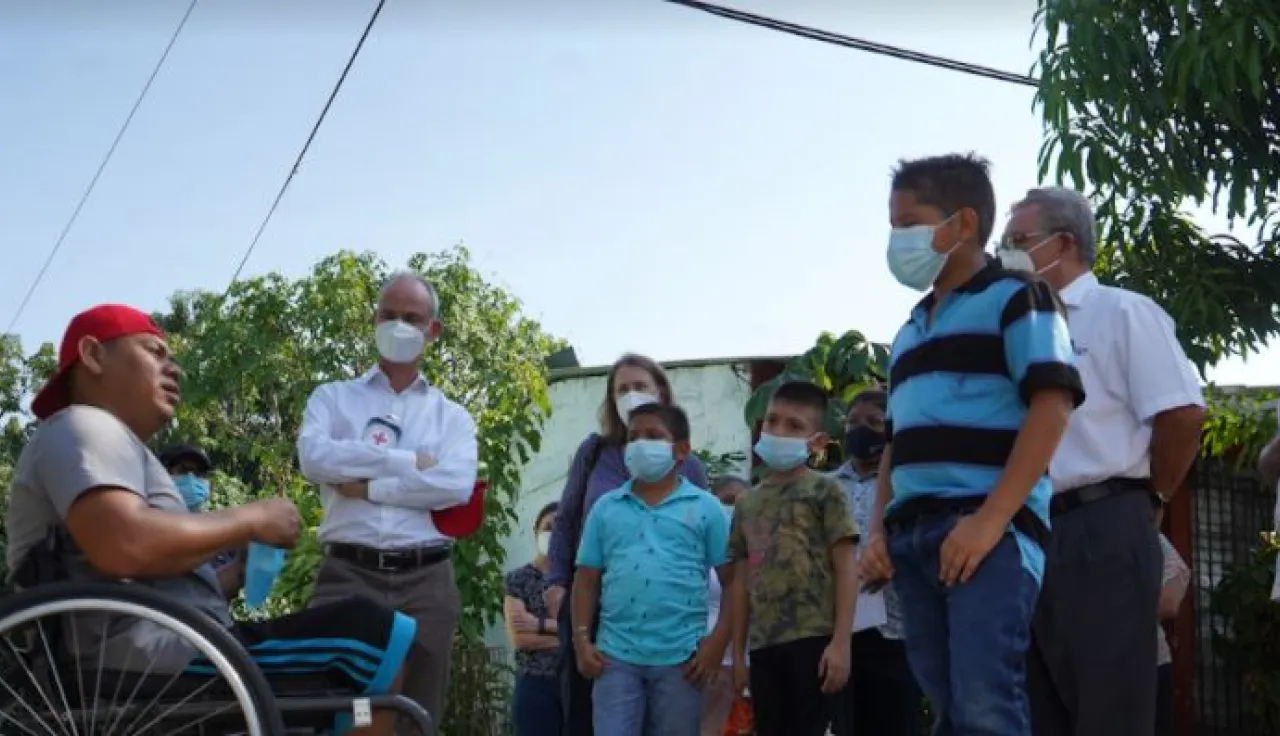
Gillies Carbonnier, the vice-president of the International Committee of the Red Cross (ICRC), recently travelled to Honduras and El Salvador.
At the end of his six-day trip, he concluded that the ongoing violence in those countries had serious and worrying humanitarian consequences, including internal displacement, migration, disappearances, homicides, restricted access to health and education services, and limited opportunities for personal and social development or community participation.
The vice-president, together with Sophie Orr, the regional director for the Americas, visited El Salvador from 10 to 13 April to strengthen cooperation with the national authorities to advance the humanitarian agenda. They met people whom the ICRC had helped, in order to find out about their needs, first-hand.
Among the communities they visited was Tikal Norte, which had received support from the ICRC and the Salvadorean Red Cross Society. The vice-president and the regional director also met with relatives of missing people and people who had been forced to flee their homes.
Mr Carbonnier acknowledged the significant progress made in El Salvador to recognize the problem of internal displacement and the adoption, in 2020, of specific legislation in that regard.
"We hope that the new law will have a very positive impact on the lives of millions of victims of violence and enable displaced people to obtain the help they need. However, significant efforts and commitment are required to implement this new legislation. The ICRC stands ready to provide support to that end, drawing on its experience and role in the humanitarian sector", he said.
With respect to migration, the ICRC vice-president stressed that although statistics from the General Directorate of Migration and Immigration for 2020 and the year to date showed a significant drop – of almost 85 per cent – in the number of Salvadoran returnees, there were concerns regarding the situation of migrant children in El Salvador, as well as in Honduras, Guatemala and Mexico.
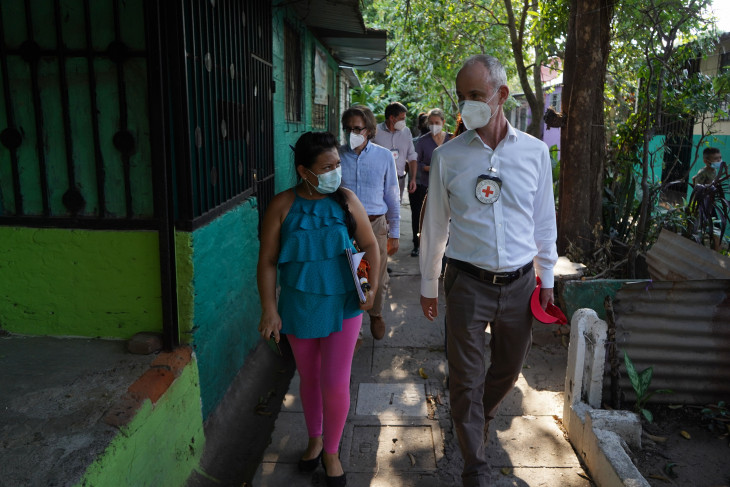
Gilles Carbonnier, Vice President of the ICRC, visits the community of Tikal Norte, in El Salvador. ICRC
He emphasized that an effective and coordinated response was needed that involved families and the authorities, and which offered dignified and safe alternatives that fostered childhood development.
Next, from 14 to 16 April, the vice-president visited Honduras to advance the humanitarian agenda and to call for efforts, in cooperation with the authorities, to make progress on draft bills relating to internal displacement by violence and regulating the use of force by law enforcement officials.
He stressed that it was vital for the National Congress of Honduras to debate, adopt and enact the bill for the protection of persons internally displaced by violence before the end of the current legislature. "This is an urgent matter that affects more than 247, 000 people; there must be no further delays", said Mr Carbonnier. "From our strictly humanitarian perspective, we believe that this legislation will introduce the changes necessary to help and protect internally displaced people."
Between 2004 and 2018, more than 247,000 people in Honduras were forced to flee their homes in order to escape widespread violence in the country. In addition to the problem of internal displacement, or as a consequence of it, many other Hondurans leave their country and embark on a migration route fraught with danger: available statistics indicate that approximately 50 per cent of Central American migrants come from Honduras.
It is therefore imperative to take urgent action, together with the Honduran Red Cross, to address this situation, ensure that the necessary legal tools are available to help and protect people forced to leave their homes, and provide lasting solutions to communities at risk.
The Government of Honduras also needs to approve the legislative bill on the use of force. "We have a golden opportunity to establish a clear framework for the security forces and reduce the risk of the unlawful use of force", said Mr Carbonnier. "We want to stress that it is extremely important to support the current draft bill, on which the national human rights commission of the National Congress has issued two favourable opinions."
In Honduras, as in other countries in the region, the ICRC will continue to work together with the armed forces and the national police force to ensure the implementation of and compliance with the provisions and principles of international human rights law governing the use of force. Joint efforts are needed to achieve that end.
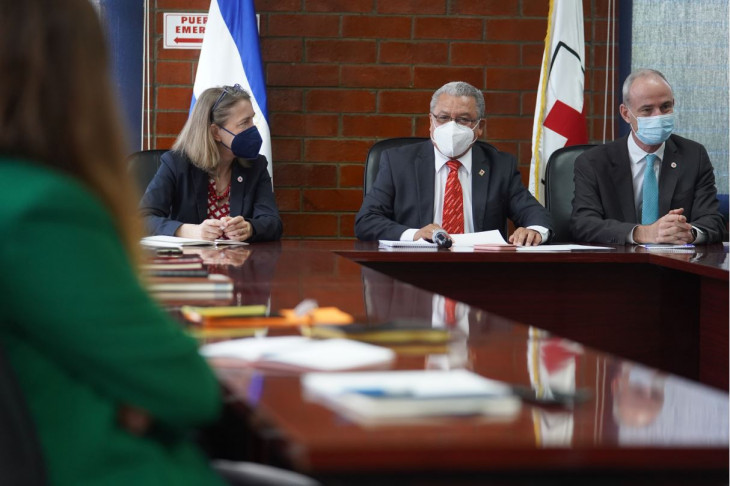
Vice President Carbonnier and the ICRC's director of operations for the Americas, Sophie Orr, endorsed cooperation ties with the Salvadoran Red Cross. ICRC
The vice-president also met with the National Red Cross Societies in both countries, which work with the ICRC on many of its projects. A tripartite agreement to increase the humanitarian impact of joint actions was signed between the ICRC, the Salvadorean Red Cross Society and the International Federation of Red Cross and Red Crescent Societies.
Finally, Mr Carbonnier expressed concern about the severe impact of the COVID-19 pandemic and of hurricanes Iota and Eta on the humanitarian situation in Central America. Communities already affected by violence have become even more vulnerable and the need for humanitarian action is greater than ever.
"Given that vaccination programmes are undoubtedly our best hope for tackling the pandemic, it is essential to ensure that vaccines are distributed equitably and that the process does not give rise to inequalities", the vice-president said. "This means that governments must consider internally displaced people, migrants and people deprived of their liberty as vulnerable groups and officially reaffirm their status as such."


